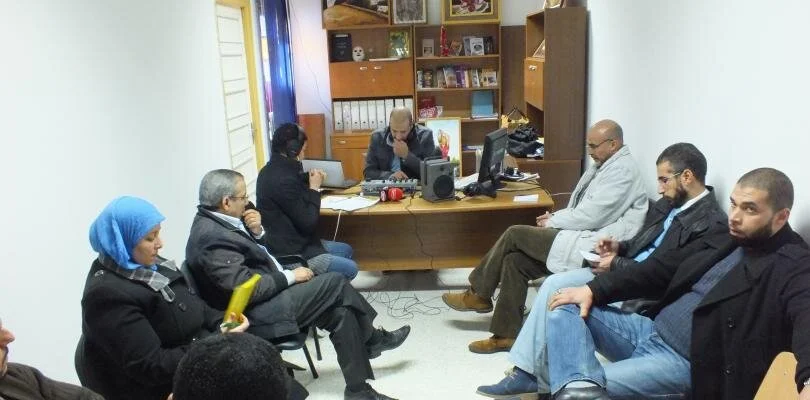Tunisian Identity Two Years After the Revolution
AAM partnered with Radio Mosaique FM to host a town hall discussion exploring Tunisian identity in a post-revolution society. The event took place one day after the second anniversary of the revolution that ousted longtime president Zine El Abidine Ben Ali.
The event connected audiences in the coastal city of Bizerte and the rural city of Beja to discuss the possible tension between a modern, secular Tunisian identity and the traditional Arab-Muslim identity that has made a strong resurgence since the revolution. Despite different responses to this question expressed during the town hall, participants and panelists seemed to generally agree that modernity and the Arab-Muslim identity did not conflict with one another. However, people disagreed on what aspects of modernity should be adopted, while still preserving elements of the traditional Tunisian identity.
Some participants said that a total departure from old traditions is preferable in order for society to advance and catch up with the developed world. Participant Farouk – a student from Bizerte – said that while the Muslim world was once a hub for modernization, the mentality within Muslim societies has changed. More conservative Islamist participants said that modernity should not be adopted in its entirety, but adapted to suit the nature of the local culture.
Both panelists explained that modernity and the Arab-Muslim identity are each comprised of many components. The Arab-Muslim identity is only one of many identities in Tunisia, and modernity has many faces.
Amel Qrami, a professor of Islamic studies, pointed out that the “modernization” that Tunisia went through did not create “modernity” in its full sense.

